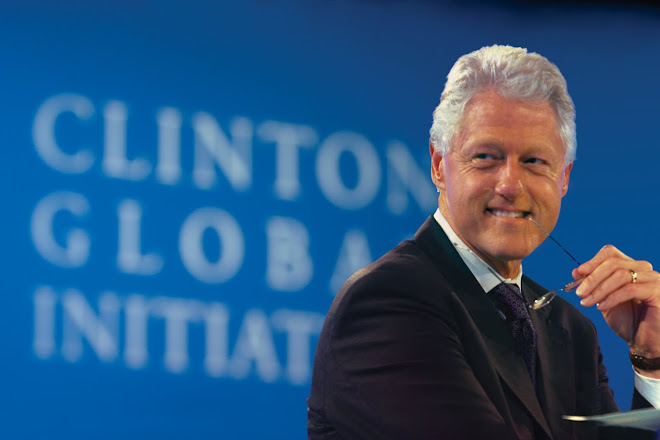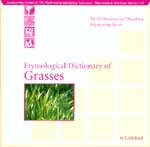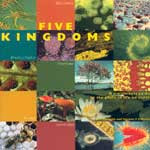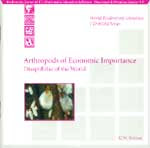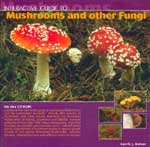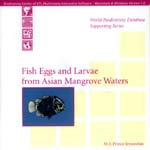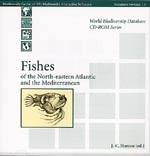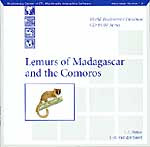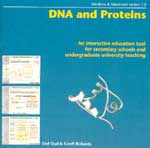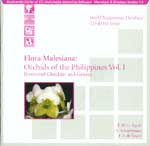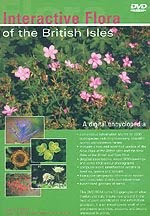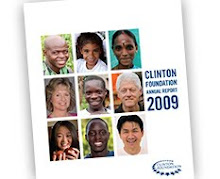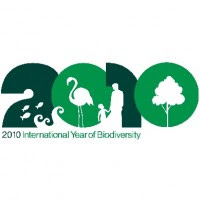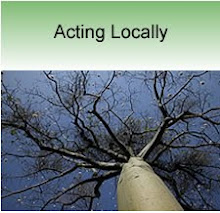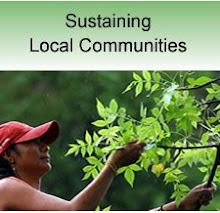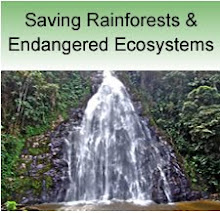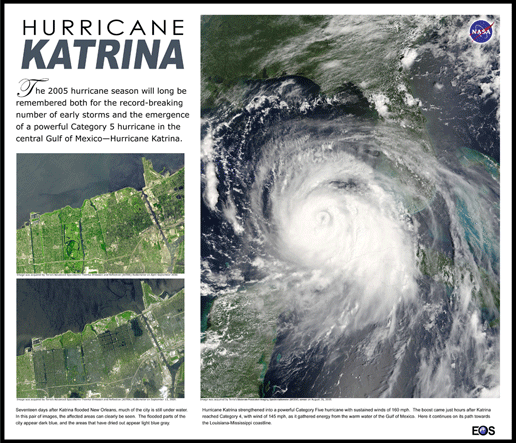About Me

- WERI FOUNDATION
- Ensure inclusive and equitable quality education and promote lifelong learning opportunities for all
Mr.Vladimir Putin Vladimirovich is the Prime Minister of the Russian Federation
Uploads by WERICAMPAIGN
Followers
BBC News - Science & Environment
2010-06-30
Gov. Barbour and Navy Secretary Mabus discuss Gulf Coast restoration
Navy Secretary Ray Mabus, the administration's leader of long-term environmental and economic planning, discusses at a press conference with Mississippi Governor Haley Barbour, how he is developing a strategy with the Gulf Coast states to ensure the coast is "as good as it was the day before the spill and hopefully better."
Read more
GULF OF MEXICO OIL SPILL
2010-06-24
HMAS Toowoomba Disarms Pirate Threat
HMAS Toowoomba has successfully thwarted a piracy attack by answering a call for assistance and conducting a boarding of a suspect vessel, 50 miles off the coast of Yemen in the Gulf of Aden.
2010-06-22
UNIFEM Welcomes UN Security Council Support for Comprehensive Set of Indicators on the Implementation of Resolution 1325 | Say NO - UNiTE
27 April 2010
United Nations, New York —
The United Nations Development Fund for Women (UNIFEM) is very encouraged by the UN Security Council’s intention to take action on a comprehensive set of indicators on the implementation of its resolution 1325 on women, peace and security, by October 2010, the occasion of the 10th anniversary of Security Council resolution 1325.
These indicators address the impact of war on women and stress the importance of women’s involvement in conflict resolution and peacebuilding. The use of the indicators contained in the report of the Secretary-General (S/2010/173) presented today would represent a clear step forward for improving accountability and implementation of the groundbreaking Security Council resolution.
“The Security Council’s commitment to take action on these indicators represents one of the most significant moves by the international security system in recent years to accelerate implementation of resolution 1325,” said Inés Alberdi, Executive Director of UNIFEM. “The indicators will reveal where women are experiencing exclusion and threats to their security and help identify good practices. They will be much more than numbers on a paper. They will provide a sensitive barometer of the current situation and help identify future priorities.”
The Secretary-General’s report recommends a global set of indicators on the implementation of resolution 1325 in four key areas: women’s participation in all aspects of conflict prevention and peace-making; prevention of violence against women; protection of women’s rights during and after conflict; and women’s needs in relief and recovery. It is a follow-up to the request by the Security Council through resolution 1889, in October 2009, for “a set of indicators for use at the global level to track implementation of its resolution 1325 (2000)” within six months.
The indicators were produced by 14 UN entities under the leadership of the Office of the Special Advisor on Gender Issues. UNIFEM was assigned the technical lead role, and the indicators were developed in close consultation with Member States and women’s civil society groups from around the world that support women’s engagement in conflict resolution and peacebuilding.
The consultative process also drew upon indicators that are currently employed in national action plans on 1325 and in other national and international efforts to implement the women peace and security agenda. Leaders of UN agencies have committed to the technical development of specific indicators, and to associated data collection efforts.
The contribution of UNIFEM as the technical lead was acknowledged at the Security Council meeting today. UNIFEM looks forward to participating in consultations with relevant stakeholders, and to continue its support to the UN System to develop a joint programme for further development of the indicators, as called upon by today’s Security Council Presidential Statement.
UNIFEM Welcomes UN Security Council Support for Comprehensive Set of Indicators on the Implementation of Resolution 1325 Say NO - UNiTE
United Nations, New York —
The United Nations Development Fund for Women (UNIFEM) is very encouraged by the UN Security Council’s intention to take action on a comprehensive set of indicators on the implementation of its resolution 1325 on women, peace and security, by October 2010, the occasion of the 10th anniversary of Security Council resolution 1325.
These indicators address the impact of war on women and stress the importance of women’s involvement in conflict resolution and peacebuilding. The use of the indicators contained in the report of the Secretary-General (S/2010/173) presented today would represent a clear step forward for improving accountability and implementation of the groundbreaking Security Council resolution.
“The Security Council’s commitment to take action on these indicators represents one of the most significant moves by the international security system in recent years to accelerate implementation of resolution 1325,” said Inés Alberdi, Executive Director of UNIFEM. “The indicators will reveal where women are experiencing exclusion and threats to their security and help identify good practices. They will be much more than numbers on a paper. They will provide a sensitive barometer of the current situation and help identify future priorities.”
The Secretary-General’s report recommends a global set of indicators on the implementation of resolution 1325 in four key areas: women’s participation in all aspects of conflict prevention and peace-making; prevention of violence against women; protection of women’s rights during and after conflict; and women’s needs in relief and recovery. It is a follow-up to the request by the Security Council through resolution 1889, in October 2009, for “a set of indicators for use at the global level to track implementation of its resolution 1325 (2000)” within six months.
The indicators were produced by 14 UN entities under the leadership of the Office of the Special Advisor on Gender Issues. UNIFEM was assigned the technical lead role, and the indicators were developed in close consultation with Member States and women’s civil society groups from around the world that support women’s engagement in conflict resolution and peacebuilding.
The consultative process also drew upon indicators that are currently employed in national action plans on 1325 and in other national and international efforts to implement the women peace and security agenda. Leaders of UN agencies have committed to the technical development of specific indicators, and to associated data collection efforts.
The contribution of UNIFEM as the technical lead was acknowledged at the Security Council meeting today. UNIFEM looks forward to participating in consultations with relevant stakeholders, and to continue its support to the UN System to develop a joint programme for further development of the indicators, as called upon by today’s Security Council Presidential Statement.
UNIFEM Welcomes UN Security Council Support for Comprehensive Set of Indicators on the Implementation of Resolution 1325 Say NO - UNiTE
About UN-REDD PROGRAMME - Develop Partnerships



The United Nations Collaborative Programme on Reducing Emissions from Deforestation and Forest Degradation in Developing Countries.
About the UN-REDD Programme
The UN-REDD Programme is the United Nations Collaborative initiative on Reducing Emissions from Deforestation and forest Degradation (REDD) in developing countries. The Programme was launched in September 2008 to assist developing countries prepare and implement national REDD+ strategies, and builds on the convening power and expertise of the Food and Agriculture Organization of the United Nations (FAO), the United Nations Development Programme (UNDP) and the United Nations Environment Programme (UNEP).
About REDD+
Deforestation and forest degradation, through agricultural expansion, conversion to pastureland, infrastructure development, destructive logging, fires etc., account for nearly 20% of global greenhouse gas emissions, more than the entire global transportation sector and second only to the energy sector.
President Clinton Makes His 11th Visit to Africa
"Our work in Africa"
THE WILLIAM J.CLINTON FOUNDATION - 17 juin 2010 — Over the years, President Clinton has traveled to Africa 10 times to meet with government leaders, communities, and individuals to support them as they take action to improve health systems, economies, and lives. This year, on his 11th trip to Africa, President Clinton will be traveling to places where the Clinton Foundation is advancing projects to treat HIV/AIDS, advance clean energy, and encourage sustainable development. His work has already helped 2.6 million people access treatment to HIV/AIDS and thousands of farmers improve their incomes. http://africa.clintonfoundation.org.
THE WILLIAM J.CLINTON FOUNDATION - 17 juin 2010 — Over the years, President Clinton has traveled to Africa 10 times to meet with government leaders, communities, and individuals to support them as they take action to improve health systems, economies, and lives. This year, on his 11th trip to Africa, President Clinton will be traveling to places where the Clinton Foundation is advancing projects to treat HIV/AIDS, advance clean energy, and encourage sustainable development. His work has already helped 2.6 million people access treatment to HIV/AIDS and thousands of farmers improve their incomes. http://africa.clintonfoundation.org.
2010-06-21
Afghanistan -Focusing on Kandahar
natochannel — 9 juin 2010 — A look at how the security situation in Kandahar province is viewed by officials, locals and ISAF troops in light of the renewed focus on the province.
2010-06-19
Secretary Clinton Remarks on World Refugee Day
U.S. Secretary of State Hillary Rodham Clinton delivers remarks from the State Department in Washington, DC about the U.S. efforts to help refugees around the world on July 18, 2010. [Go to http://www.state.gov/video for text transcript and more video.]
2010-06-18
BP shows Oil Spill Live Feed as slick scale estimates questioned
Live video feed of the Gulf of Mexico oil leak has been posted online on Thursday. Oil company BP has conceded that more oil is gushing into the Gulf than it had estimated after several scientists watching the video said they believe the leak is higher than official figures.
BP relies on 'top kill' as it still fails to stop oil spill
The U.S. Government says it won't take over oil clean-up operations in the Gulf of Mexico from BP. Washington had criticised the oil giant for being too slow in its crisis management efforts. BP is pinning its hopes of stopping the gusher on yet another technique never tested 1,500 metres underwater: a 'top kill' in which heavy mud and cement would be shot into the blown-out well to plug it up. At least 23 million litres of crude oil have spewed into the Gulf, according to a Coast Guard and BP, though some scientists say they believe the spill has already surpassed the 42 million litre 1989 Exxon Valdez oil spill off Alaska as the worst in US history.
2010-06-10
רשת חוסן אזרחית: חוסן לאומי ומקומי בישראל
Check out this SlideShare Presentation:
רשת חוסן אזרחית: חוסן לאומי ומקומי בישראל
View more documents from Gahl Rinat.
רשת חוסן אזרחית: חוסן לאומי ומקומי בישראל
Check out this SlideShare Presentation:
רשת חוסן אזרחית: חוסן לאומי ומקומי בישראל
View more documents from Gahl Rinat.
רשת חוסן אזרחית: חוסן לאומי ומקומי בישראל
UJA Federation of New ork & Israel Trauma Coalition for response preparedness & The REUT Institute
רשת חוסן אזרחית: חוסן לאומי ומקומי בישראל
View more documents from Gahl Rinat.
רשת חוסן אזרחית: חוסן לאומי ומקומי בישראל
UJA Federation of New ork & Israel Trauma Coalition for response preparedness & The REUT Institute
רשת חוסן אזרחית: חוסן לאומי ומקומי בישראל
View more documents from Gahl Rinat.
2010-06-09
PM Netanyahu's Speech, MASA Annual Conference 2010
IsraeliPM — 5 mai 2010 — PM Netanyahu's Speech at MASA Annual Conference Binyanei Hauma in Jerusalem 2010.
Over 2500 MASA students participated in this event.
2010-06-08
World Refugee Day 2010 poster - Mother and Child
Women’s Concerns
Although the concerns of uprooted women may vary from context to context, cross-cutting issues such as maternal and reproductive health problems, gender discrimination, sexual and gender-based violence (SGBV), including domestic violence and trafficking, are often identified as protection issues affecting women and girls. Women are particularly affected by restricted access to resources, limited education or training, and constrained participation in policy formulation and decision-making processes. They face the rigours of long journeys into exile, official harassment or indifference, and frequent sexual abuse – even after reaching an apparent place of safety. Women must cope with these threats while being nurse, teacher, breadwinner and physical protector of their families
Children’s Concerns
Forcible displacement exacerbates childrens’ exposure to violence, exploitation, abuse and neglect. Children are at particular risk and require special attention due to their dependence upon adults to survive, their vulnerability to physical and psychological trauma, and the developmental needs that must be met to ensure normal growth and development. Although children enjoy comprehensive rights under international law, more often than not refugee, other displaced and stateless children are deprived of the most basic ones, including the right not to face discrimination, the right to health and the right to education. This is most notably the case when refugee children lack access to child protection systems in the country of asylum.
While all children have common needs, certain groups may face increased protection risks. These include unaccompanied and separated children; adolescents, especially teenage mothers and their children; victims of trafficking and sexual abuse; survivors of violence, in particular sexual and gender-based violence; children who get married under the age specified in national laws or are forced into unions; children who are or have been associated with armed groups; children in detention; children who face social discrimination; children with mental or physical disabilities; children living with or affected by HIV and AIDS; and children out of school.
Although the concerns of uprooted women may vary from context to context, cross-cutting issues such as maternal and reproductive health problems, gender discrimination, sexual and gender-based violence (SGBV), including domestic violence and trafficking, are often identified as protection issues affecting women and girls. Women are particularly affected by restricted access to resources, limited education or training, and constrained participation in policy formulation and decision-making processes. They face the rigours of long journeys into exile, official harassment or indifference, and frequent sexual abuse – even after reaching an apparent place of safety. Women must cope with these threats while being nurse, teacher, breadwinner and physical protector of their families
Children’s Concerns
Forcible displacement exacerbates childrens’ exposure to violence, exploitation, abuse and neglect. Children are at particular risk and require special attention due to their dependence upon adults to survive, their vulnerability to physical and psychological trauma, and the developmental needs that must be met to ensure normal growth and development. Although children enjoy comprehensive rights under international law, more often than not refugee, other displaced and stateless children are deprived of the most basic ones, including the right not to face discrimination, the right to health and the right to education. This is most notably the case when refugee children lack access to child protection systems in the country of asylum.
While all children have common needs, certain groups may face increased protection risks. These include unaccompanied and separated children; adolescents, especially teenage mothers and their children; victims of trafficking and sexual abuse; survivors of violence, in particular sexual and gender-based violence; children who get married under the age specified in national laws or are forced into unions; children who are or have been associated with armed groups; children in detention; children who face social discrimination; children with mental or physical disabilities; children living with or affected by HIV and AIDS; and children out of school.
2010-06-01
Desertification - The Horn Of Africa Experiencing Serious Drought
Check out this SlideShare Presentation:
Subscribe to:
Comments (Atom)
State of the Planet
Columbia University, New York - Jeffrey D. Sachs
Earth Institute : Research and Press Releases
Medicine and Health
Innovative Israel - Medicine & Health
© Israel Ministry of Foreign Affairs
Agriculture
Innovative Israel - Agriculture
© Israel Ministry of Foreign Affairs
Cleantech
Innovative Israel - Cleantech
© Israel Ministry of Foreign Affairs
BioTechnology
Innovative Israel - BioTechnology
© Israel Ministry of Foreign Affairs
Water Technology
Innovative Israel - Water Technology
© Israel Ministry of Foreign Affairs
HiTech
Innovative Israel - HiTech
© Israel Ministry of Foreign Affairs
Israel 21c Technology Feeds
Israel the State - History
Israel the State - Speeches and Interviews
Israel the State - Aid to Gaza
Israel the State - The Iranian Threat
Israel the State - Peace Process
Israel the State - Hamas & Gaza
Babylon and Beyond
Israel Experience - Coexistence
Israel Experience - Humantiarian Aid
The State of Israel. Humantiarian Aid, Israel Ministry of Foreign Affairs
Israel Experience - Art/Fashion
The State of Israel.
- Art & Fashion, Israel Ministry of Foreign Affairs.
Israel Experience - Israel - Diaspora
The State of Israel
- Diaspora, Ministry of Foreign Affairs
Israel Experience - Lifestyle
The State of Israel.
- Lifestyle, Israel Ministry of Foreign Affairs
Israel Experience - Travel & Tourism
The State of Israel.
- Travel & Tourism, Israel Ministry of Foreign Affairs.
The Israel Experience : Nature/wildlife
Etymological Dictionary of Grasses
Five Kingdoms A Multimedia Guide to the Phyla of Life on Earth
An Interactive Education Tool for Secondary Schools and Undergraduate University Teaching

Mutations - Mutations - changes to the gene make-up of an organism - are hugely important. They are responsible for all the genetic variation in humans and other species thus allowing evolutionary changes to take place. Mutations is a comprehensive program in which the types, origins and consequences of both gene (DNA) and chromosome mutations are introduced.
Arthropods of Economic Importance Diaspididae of the World
Yeasts of the World Morphology, physiology, sequences and identification
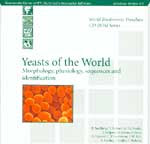
Yeasts are not only essential for the production of bread, beer and wine, but also play a major role in many more modern industrial processes, such as the production of enzymes, pigments, antioxydants etc. Moreover many yeasts are important as human pathogens, or as spoilage organisms in the food industry.
Interactive Guide to Mushrooms and other Fungi
Harmful Marine Dinoflagellates
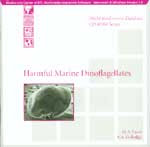
This treatise represents a comprehensive, up-to-date multifunctional dinoflagellate identification database featuring information on 69 species of harmful marine dinoflagellates and associated species present in the world's oceans. This database includes 44 toxin-producing species, brevetoxins, saxitoxins and ciguatoxins, and seven nuisance species that produce 'red tides' often resulting in massive sea life mortalities. In addition to the species description, information is available on the morphology, reproduction, ecology, toxicity, and habitat and locality for each species. A comprehensive glossary of more than 120 related scientific terms, and an extensive literature reference collection containing about 500 citations is included. There are nearly 600 figures illustrating every species via scanning electron micrographs (60%), light micrographs 120%), and/or line drawings (20%). The matrix-based identification key allows for multiple entry of characters to facilitate fast and effective diagnosis of a given species.
Fishes of the North-eastern Atlantic and the Mediterranean
Lemurs of Madagascar and the Comoros
DNA and Proteins
Arthropods of Economic Importance Agromyzidae of the World
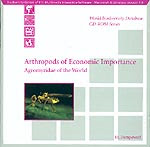
The Agromyzidae (mining flies) are a highly diverse dipteran family of exclusively phytophagous species. The world fauna consists of about 2,750 species. Of these, some 110 species are known to occur on cultivated crops. A number of species are of particular importance, especially Liriomyza and Ophiomya.
Chironomidae Larvae Key to the Higher Taxa and Species of the Lowlands of Northwestern Europe
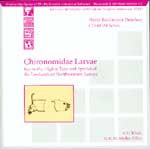
The Chironomidae form a cosmopolitan family of small nematocerous flies represented by some 1,300 species in the West Palaearctic Region. Chironomid larvae are widely distributed and the vast majority have aquatic juvenile stages which, on average, comprise one third of the invertebrate species in freshwater habitats. This usual abundance, and the fact that a number of species are pollution-tolerant, make chironomidae ideal indicator species in monitoring the quality of surface waters.
Flora Malesiana: Orchids of the Philippines Volume 1
Birds of Europe 'The handy birding tool'
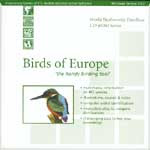
Compiled by European ornithologists, Birds of Europe is a comprehensive source of information on 447 bird species. Detailed descriptions, full colour illustrations, sound recordings of birdcalls, pictures of eggs, video clips, and interactive maps depicting the summer, year-round and winter distribution.
